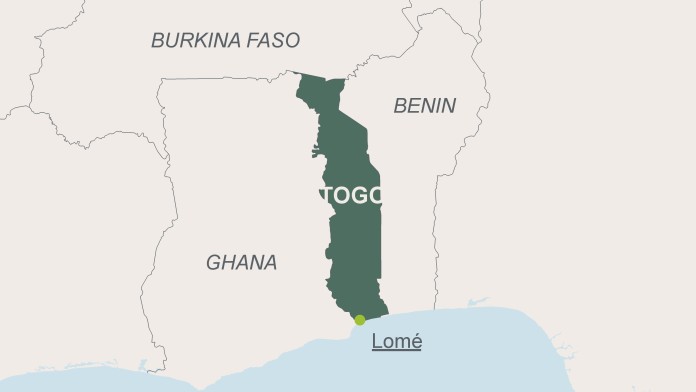
Togo has made great efforts in recent years to advance its social and economic development. Since 2012, the German Federal Government has been helping the West African state to improve living conditions for its population. Development cooperation had previously been suspended for 20 years due to shortcomings in the areas of democracy, the rule of law and human rights. Togo has now embarked on a reform course and aims to become a middle-income country by 2030. Germany agreed a reform partnership with Togo in May 2021.
Despite its efforts, Togo is still facing major developmental challenges. It is currently one of the poorest countries in the world. In the latest United Nations Development Index, it ranks 162 out of 191 countries. Up to now, political decisions and economic power have been concentrated in the capital city of Lomé, and decentralisation is now expected to contribute to greater proximity to citizens and development in the area. The people in the multi-ethnic state primarily make their living in agriculture. Outside of this sector, there are very few jobs, especially for young people, while prospects on the labour market are poor. The infrastructure – in terms of roads, health and educational facilities and energy supply – has not been developed much to date. Gender equality is still inadequate, which is also reflected in high maternal and child mortality rates.
To help Togo with its reform efforts, KfW is supporting the country on behalf of the German Federal Government in the following areas:
On behalf of the Federal Ministry for Economic Cooperation and Development (BMZ), KfW has been promoting the expansion and equipping of vocational schools since 2015 to enable young people to enjoy better career prospects. To make the country more attractive for private sector investments, KfW is financing the increase in Togo’s equity with African Trade Insurance (ATI). This makes financing for private investment projects more attractive.
KfW has been supporting the expansion of the rural transport network on behalf of the BMZ since 2016. Currently 400 kilometres of rural roads are being rehabilitated, with another 500 kilometres to follow soon. This facilitates the transport of agricultural products such as cotton, coffee and cocoa to local markets, the expansion of which is also supported by KfW.
In addition, Financial Cooperation finances town halls in rural areas so that the municipalities can offer important municipal services, such as issuing birth and marriage certificates. This decentralisation helps to make administration closer to citizens and more transparent. KfW also participates in FACT – the national municipal development fund. To make births safer, health centres for assisted delivery and emergency newborn care are financed.
KfW is also promoting the use of renewable energies in Togo on behalf of the German Federal Government. It finances the rehabilitation of the Nangbéto hydropower plant, which was commissioned in 1988. It also supports the West African Power Pool (WAPP) in expanding the grid.
This commitment in the listed areas contributes to supporting the Togolese government’s efforts to further develop the country in many areas.
KfW Office Lomé
Director KfW Office: Sonja Wassermann
S/c Agence Française de Développement
437 Avenue de Sarakawa
BP 33 Lomé - Togo
+228 22 20 04 31
Fax: +228 22 20 04 32